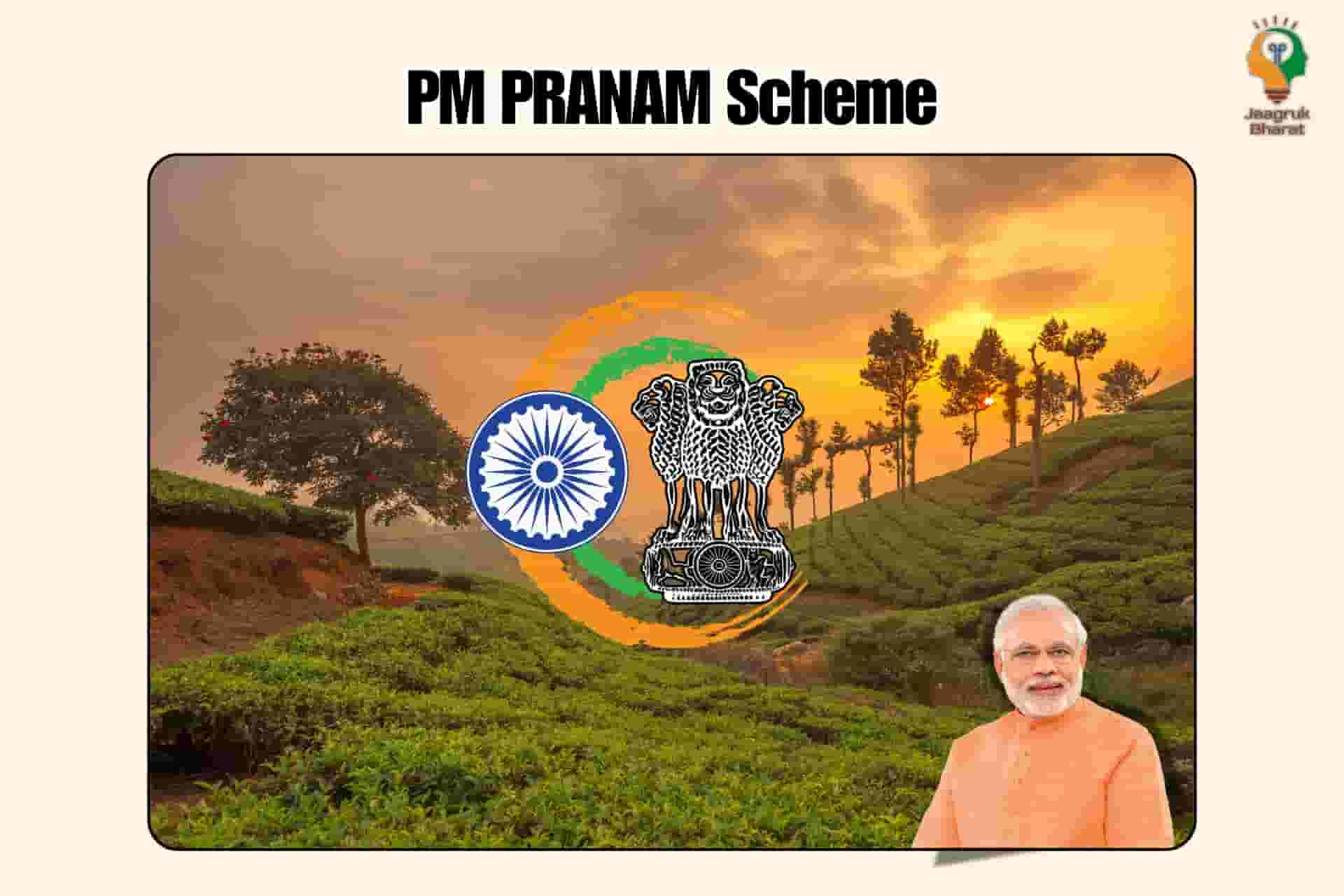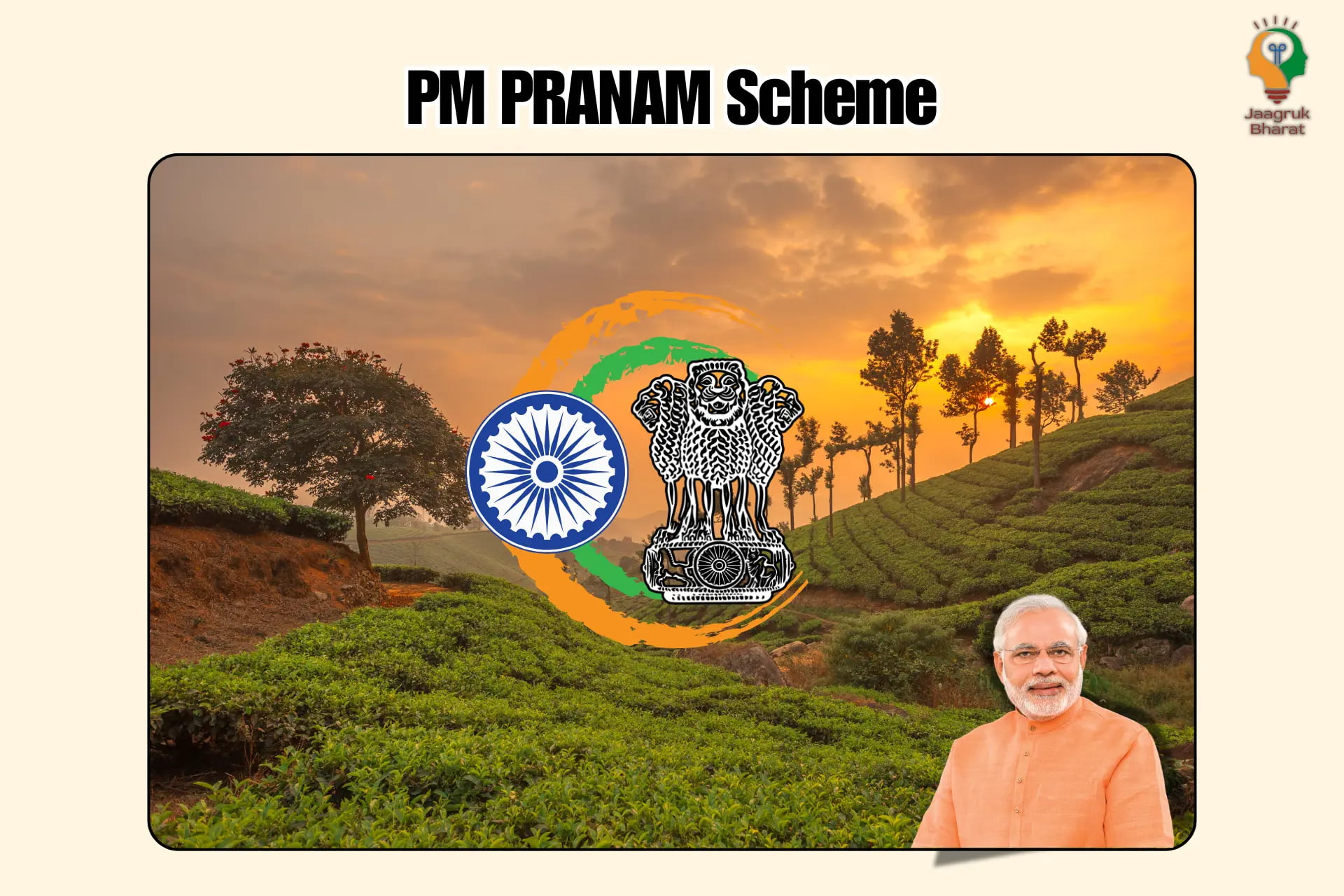PM PRANAM Scheme on Fertilizers and its Impact : India's Green Initiative
Updated: 12-10-2025 at 6:41 PM
2k


There are innumerable sectors and domains in India that yield a variety of goods and services; one of those sectors is the agriculture sector, a sector that is the world's lifeblood. Agriculture is one of those sectors responsible for a country’s healthy population by cultivating and supplying an enormous range of enriching food and supplements. Therefore, it is crucial to look after and provide aid to the farmers making their work efficient.
Read More: Atma Nirbhar Bagwani Yojana | How It Is Impacting The Future Of Agriculture?
The government of India has taken a step in the same direction by launching the Pradhan Mantri Promotion of Alternative Nutrients for Agriculture Management Yojana (PM Pranam Scheme) [पीएम-प्रणाम योजना]. It is an initiative to promote sustainable farming practices, fulfil the commitment to environmental conservation, and increase farmers’ knowledge.
What Is The Need For This Govt Scheme?
For a long time, farmers in India have been using chemical fertilisers for cultivating crops which has surely increased the yields of the crop but at the same time has contributed to the depletion of our environment’s health.
Abusing fertilisers while farming specifically nitrogen-based ones like urea pollutes the water bodies, contributes to greenhouse gas emissions, and degrades soil’s health which eventually reduces its fertility over time.
The PM Pranam Scheme (पीएम-प्रणाम योजना) was launched to overcome these issues. The central government scheme for farmers promotes and spreads awareness to farmers about using alternative and eco-friendly fertilisers such as bio-fertilisers, organic manure, or other nutrient-full sources.
The scheme aims to foster sustainable farming practises in India’s agriculture sector by reducing the use of chemical fertilisers, enriching soil’s health and hence the crops’ health, and minimising environmental harm.
Read More: Cultivating A Brighter Future: How India‘s Organic Farming Policies Are Changing Agriculture?
Grants Offered Under The Scheme (पीएम-प्रणाम योजना)
-
States that considerably reduce the use of chemical fertilisers are given a grant equal to half of the saved subsidy.
-
70% of the grant received is allocated to infrastructure development for producing alternative forms of fertilisers.
-
The remaining 30% is used to reward farmers who use bio-fertilisers and encourage them and others to reduce chemical fertilisers’ use.
Read More: Soil Health Card Policy: Better Agricultural Productivity And Sustainability For Indian Farmers
Implementation Of The Scheme
The PM Pranam Scheme is run by a collaboration between central state governments, agricultural institutions, and farmers’ organisations. Unlike other govt schemes where individuals have to apply to avail of the scheme’s benefits, the PM Pranam Scheme (पीएम-प्रणाम योजना) operates differently wherein the state governments are the main participants.
-
The scheme is rolled through initiatives taken by a state’s government such as organising awareness and training programs for the farmers to promote sustainable farming, primarily eliminating the use of chemical fertilisers and their harmful long-term effects; arranging for workshops and field demonstrations to teach methods of sustainable farming, and providing access to bio-fertilisers at subsidised rates through agricultural departments.
-
Agriculture extension services are also carried out wherein site visits, advisory, and technical support are provided to the farmers.
-
The central government monitors the states’ progress and ensures that an adequate supply of bio-fertilisers is maintained.
-
States that reduce the use of chemical fertilisers secure additional funds which are further used for other agriculture-related projects such as improving infrastructure or granting subsidies.
Read More: Good News For Agripreneurs: Government To Launch AgriSURE Fund Soon
Conclusion
The PM Pranam Scheme is a green scheme devised to conserve our environmental health. It not only sows the seed of sustainable farming in farmers’ minds but also focuses on healthy yields of crops by reducing the use of chemical fertilisers. It is crucial to eliminate its use with time as it harms the soil eventually leading to disastrous outcomes. After all, farming should be all about maintaining a balance between organic fertilisers and effective farming practices.
If you’ve any queries, you can contact the Department of Fertilisers through their official website.
Frequently Asked Questions
0
0
2k
0
0
2k Views
0
No comments available





Our Company
Home
About
T&C
Privacy Policy
Eula
Disclaimer Policy
Code of Ethics
Contact Us
Careers
Cancellation & Refund Policy
Categories
Women
Insurance
Finance
Tax
Travel
Transport & Infrastructure
Food
Entertainment
Communication
Government ID Cards
E-commerce
Traffic guidelines
Miscellaneous
Housing and Sanitation
Sports
Startup
Environment and Safety
Education
Agriculture
Social cause
Employment
Disclaimer: Jaagruk Bharat is a private organization offering support for documentation and government scheme access. We are not affiliated with any government body. Official services are available on respective government portals. Our goal is to make processes easier and more accessible for citizens.
All Copyrights are reserved by Jaagruk Bharat